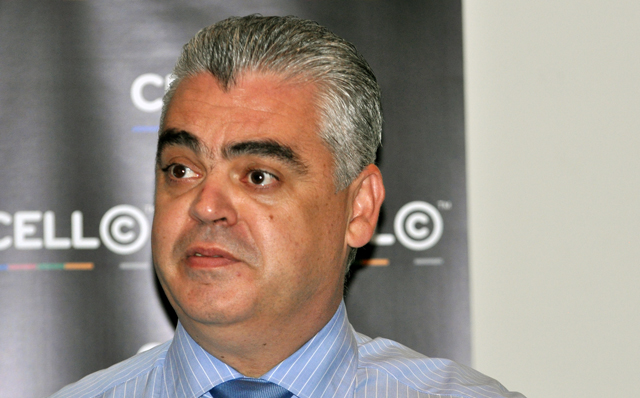
Communications regulator Icasa “failed in its statutory obligation” to promote competition in South Africa’s telecommunications industry when it approved the transfer of Neotel’s operating and spectrum licences to Vodacom, Cell C CEO Jose Dos Santos said on Monday.
“By not considering the potential anticompetitive effects of the proposed merger — facts it had at hand — Icasa failed its statutory obligation to promote competition that brings about affordable prices for consumers,” Dos Santos said in a statement.
His remarks come after the high court in Pretoria found that Icasa erred in approving the transfer of Neotel’s licences to Vodacom. In a damning judgment, handed down on Friday, Judge DS Fourie ordered that Icasa’s approval of the transfer be site aside in its entirety.
The application against Icasa had been brought to the high court by Telkom, MTN, Cell C and Internet Solutions.
“Given its past actions, which included fighting cuts to already-expensive mobile termination rates, there is little doubt that Vodacom would have used its acquired girth to continue forcing the market into inadvertently punishing consumers,” Dos Santos said.
“Likewise, the high court has laid bare how Icasa failed to meet one of the most basic requirements of its existence: the creation of competition in the telecoms industry,” he added.
Icasa, the court judgment said, wanted the Competition Commission alone to make a finding on the impact of the deal on competition in the sector.
Icasa has said it is studying the judgment and will comment later.
“It is hard to paint a rosy picture of telecoms in South Africa. The environment is dominated by two players and policed by a regulator that does not always meet its mandate,” Dos Santos said.
“In the end, all that grief is passed onto South African mobile and Internet users, who carry the brunt of some of the highest telecoms costs in the world.”
Icasa’s behaviour, incredibly, included private meetings with Vodacom
He said the only solution is an “open and competitive market, made possible by a level playing field”.
“If Vodacom were to acquire Neotel’s vast fibre networks as well as its mobile spectrum, it would render the company’s iron grip on the market into an unassailable monopoly able to dictate the price consumers pay to connect,” he said.
“Vodacom’s takeover of Neotel would have delivered substantial amounts of [spectrum] to the former, translating into an incredible and unfair advantage that could only hurt the market and ultimately consumers.”
Dos Santos also lashed out at Icasa. “Its behaviour, incredibly, included private meetings with Vodacom. The high court judge said that for an administrator to attend a private meeting with one of the parties under these circumstances was “not only improper, but also unlawful”.
‘Responsible and fair market’
Any merger between Vodacom and Neotel should be opposed, Dos Santos said, as it would “make it even harder for newcomers to compete in and grow South Africa’s Internet market”.
“As the need to connect more South Africans to the Internet and the demand for affordable broadband services continue to grow, every measure should be taken to ensure a responsible and fair market — one that ultimately provides better services for less to all South Africans,” he said.
Although Friday’s court judgment appears to be bad news for Vodacom, the company likely had already been advised by its legal team that Icasa would lose the case.
Last November, it withdrew from hearings at the Competition Tribunal while it restructured the acquisition of Neotel. Then, in early December, Vodacom said it would no longer acquire Neotel’s spectrum. Instead, Neotel would offer a “roaming agreement” to all the mobile network operators.
Industry insiders say Vodacom was forced to do this when it realised that Icasa would lose the high court challenge. — (c) 2016 NewsCentral Media




